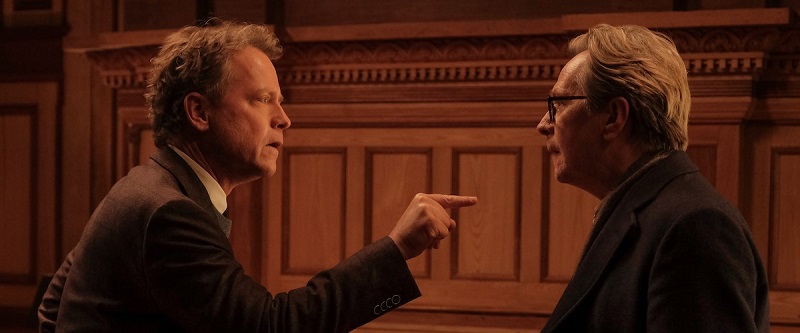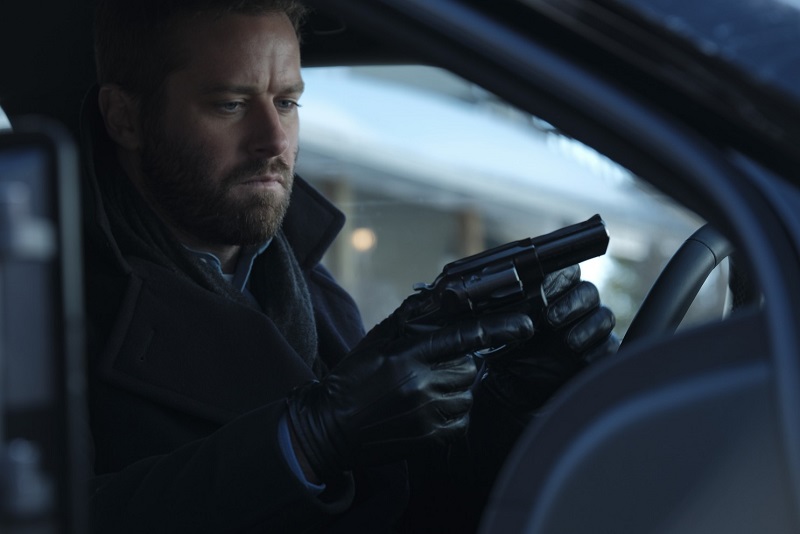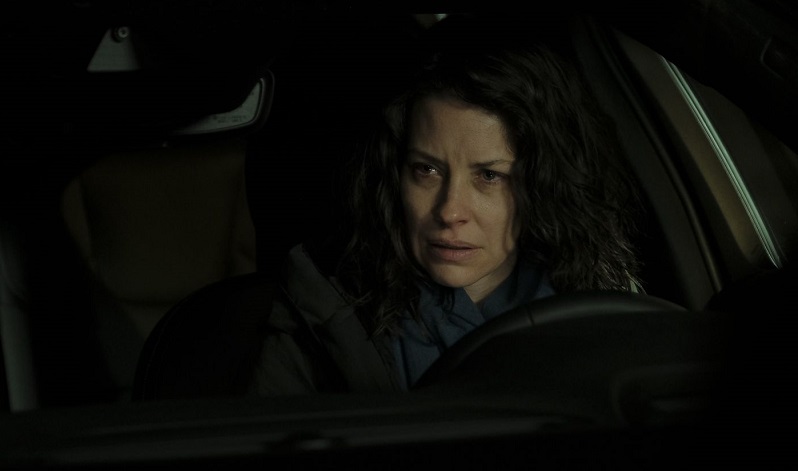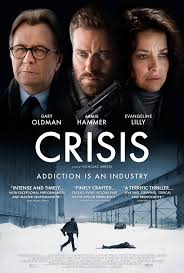First of all, Crisis is not Traffic. Sure, there are similarities. Both Crisis and Traffic are films that tackle one of the most damaging societal issues and that is drug abuse.

Whereas the latter—the 2000 four-time Oscar winner—dealt with the tsunami of cocaine coming over our border to the south and featured what would work out to be eventual interconnected vignettes embodying the human cost of this particular era of the so-called War on Drugs. The former is the modern Crisis and tackles the 2021 version of the “War on Drugs” as opioids seep into seemingly every little nook and cranny. How many deaths thus far since “Oxy” started its deadly run upon a community of souls seeking relief from a myriad of sources of pain?
According to the Centers for Disease Control and Prevention (CDC), since 1999, more than three-quarters of a million people have perished from a drug overdose. Since the advent of Oxytocin, two-thirds of those deaths were from opioids. That is the definition of a public health catastrophe.
In Crisis, of course, the drug that is most in the DEA and FBI’s crosshairs are those painkillers, and now… heroin—which many who are hooked on the opiates turn to when their physicians cut off the supply.
Although they are diverse and completely different films, some of the fighting the proliferation of opiates in our society with these drugs illustrates that the drug’s destructive path is far and wide.
Gary Oldman portrays a scientist and professor in Crisis, who is also a big pharma expert. When it is brought to his attention that the rats in the lab are even more addicted to this new, promised to the public a painkiller whose addiction level was zilch, he immediately wants the drug’s epic rollout paused. How bad is it? By the tenth day of the trial with these little cuties, they are all dead.
Crisis becomes a capitalism versus public health safety drama, with a whistle-blower timely thriller milieu tossed in there. The Nicholas Jarecki wrote and directed drama is the helmer’s true second feature, after 2012’s Arbitrage. His control of his artistry is impressive, and we look forward to whatever is next coming down the pike from this filmmaker.
The entire cast raises their games and reminds that old adage about how there are no small parts, only small actors. Oldman is joined by Armie Hammer as Jake Kelly, a federal agent on a mission to bring down “pill mills” and to turn the tide in the crisis that in addition to a global pandemic, is crippling our nation’s productivity. Evangeline Lilly (Ant-Man, Lost) is a mother whose teenage son dies from an overdose that seems simultaneously fishy and also a death out of left field to parents who thought for sure that their children would never even come close to step out onto the opioid path. Greg Kinnear is Oldman’s boss at the university, Dean Geoff Talbot.

He has an interesting needle to thread. On one hand, he has to be Professor Brower’s biggest cheerleader while still keeping an eye on the college’s financial bottom line and more.
Fast and the Furious star Michelle Rodriguez also stars in Crisis! She’s an agent with Kelly while rapper/actor Kid Cudi stars as Ben Walker, with Johnny Depp’s daughter, Lily-Rose Depp is Emmie Kelly and Luke Evans (also an F&F veteran) is Bill Simmons.
To borrow from baseball, Crisis’ bench is deep.
How the interweaving spokes in the film’s wicked wheel come together is handled with a sobering amount of reality by Oldman in particular. Knowing the disastrous results that have decimated families in the last several years, in particular, the Oscar winner for Darkest Hour represents a man possessed. He knows how quickly things can spiral out of control. When it comes back to the university (which it always does) that they knew that this added layer to the testing program was ignored will cost lives and enormous amounts of cash.
Dr. Brower is a role custom-made for Oldman. It allows the Oscar winner to go up against a wall that is not going to budge, even if—to him—it is a matter of life and death. His frustration meter will be well into the red, but at the same time, we as the audience are quietly cheering him on to do everything in his power to put an end to an epidemic that is completely man-made.

Hammer plays his agent toughly, with a dash of desperation. An entire generation of people are failing to grow up—washed away by an opiate crisis that had America’s law enforcement fighting a battle with one hand tied behind their back. If one can look past his current tabloid headline-generating behavior, the man is an astounding actor. Whether it is Free Fire or Call Me By Your Name, this is a thespian who has found a passion and dives into the character he’s been tasked to play’s pool with a panache that is impressive.
Then, there’s Lilly. She exemplifies the families who are left to pick up the pieces when these drugs get the best of our loved ones. She has a subtle, yet seismic, mission and it best if you are not in her path when she goes by. Her mother is grieving but hasn’t allowed herself to fully go down that avenue because she’s too busy putting pieces together that is her son’s puzzle of life. It’ is amazing how easily—for lack of a better word—it is for folks to secure, and thus get hooked, on these drugs.
They always talk about gateway drugs and the truth of the matter is, it is drugs such as the opiates featured in Crisis and dominating our local headlines with their daily costs that lead users to something you would never think such-and-such would turn to—heroin. It happens, too often.
Crisis is also not Traffic in that it is a powerful motion picture that just doesn’t possess the staying power to make you think about it beyond the day the movie was experienced. It’s possible that several things happen. We are in the midst of a pandemic and as such, it’s as if everything else has been put on pause. With over 500,000 Americans died due to the Coronavirus, we are numb as a populous. Still, Crisis paints a picture that must be addressed alongside putting Americans back to work and returning life to normal, post-Covid-19.

All involved in the production have put together a film that is important because it can serve as a snapshot of a moment in time when things seem to go completely off the rails.
Grade: B

